Team members
Assoc Prof Daniel Buchanan
Laboratory Head

- Position
- Associate Professor
- Affiliation
- Joint Appointment, Department of Clinical Pathology and Centre for Epidemiology and Biostatistics
- Publications
- Google scholar
- Phone
- +61 3 8559 7004
- Assoc Prof Daniel Buchanan
Bio
Dr Buchanan received his PhD in Molecular Genetics in 2010 from The University of Queensland’s School of Medicine.
In 2014, he moved his laboratory to the Department of Pathology at The University of Melbourne after 10 years at the QIMR Berghofer Medical Research Institute. His research focuses on the genetic classification, aetiology and architecture of colorectal cancer. His current research projects focus on 1) identifying novel genetic risk factors for colorectal cancer using next generation sequencing, 2) identifying biologically and clinically relevant subtypes of colorectal neoplasia through tumour profiling and integration of genetic, epigenetic, somatic mutations and histopathological features, and 3) Strategies to identify colorectal cancer-affected individuals within the population who carry mutations in established high-risk genes for Lynch syndrome and polyposis syndromes.
He has over 100 peer-reviewed publications on various aspects of hereditary cancer syndromes including diagnostic and translational applications. As a result of his publications on tumour and germline testing to identify mismatch repair gene mutations (including the utility of testing adenomas, breast and prostate cancers), he was invited to join the scientific advisory board of the Lynch Syndrome Australia organization.
Dr Buchanan is the Co-Principal investigator of the Australasian Colorectal Cancer Family Registry, a member of the steering committee for the International Colon Cancer Family Registry Cohort (C-CFR) and the Melbourne Collaborative Cohort Study (MCCS) for colorectal cancer. He is the Chair of both the "Gene discovery and Post-GWAS" and "Molecular Pathology" working groups of the C-CFR. Since 2006, he has led the molecular genetic testing and the biorepository activities for the Australasian site of the International Colon Cancer Family Registry (Colon-CFR), a $23m National Institution of Health (NIH) project that has been funded for four consecutive five-year periods (1997–2017) to become Australia’s largest repository of colorectal cancer family data. During this time he has successfully led several large scale molecular testing projects for the Colon-CFR and MCCS including whole-exome and whole genome sequencing of >200 colorectal cancer-affected and polyp-affected individuals, SNP genotyping for >10,000 participants, DNA methylation for >3000 CRCs and somatic mutation testing for >10,000 colorectal cancers and polyps. Dr Buchanan is also a key member of the research team on a NHMRC Centre for Research Excellence to identify inherited genetic risk factors for colorectal cancer. He is responsible for the bioresources of the Australasian Colorectal Cancer Family Registry (ACCFR). Since 2006, he has supervised over 20 researchers, post-doctoral fellows and technicians with wide-ranging skill sets required for internationally competitive research for this and other studies.
Prof Ingrid Winship
Professor of Adult Clinical Genetics
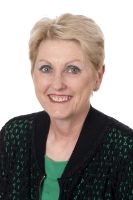
- Position
- Professor of Adult Clinical Genetics
- Affiliation
- The University of Melbourne and The Royal Melbourne Hospital
Bio
My career has combined clinical practice, biomedical research and translation of research into practice and policy. I am a clinician scientist in Clinical Genetics, Cancer Genetics and Dermatology. In 2006, I was appointed as Inaugural Chair of Adult Clinical Genetics at the University of Melbourne and the Royal Melbourne Hospital. At this time, I was also appointed Melbourne Health's Executive Director of Research; during my 12-year tenure I was able to enhance the embedding of research into clinical practice in this large academic teaching hospital.
While I work across many domains within clinical genetics, my research interests have focused on colorectal cancer (CRC), especially the potential for CRC prevention. I have used knowledge generated by our and other’s research to optimise state of the art clinical genetic services in adult medicine, with a focus on familial cancer. I have worked for > 20 years through the international Colon Family Registry. I am the PI of the NHMRC-funded study on Sebaceous skin lesions and Muir-Torre syndrome.
As a practicing clinician, I provide academic and clinical leadership in the inherited cancer clinics for > 30 years. I serve/ have served on multiple high-level committees within Australia, and Victoria, which places me well to translate research findings into practice and policy. These have included the Victorian Cancer Agency, where I previously chaired a working group on cancer prevention. I served on the Victorian Cancer Action Plan Implementation Committee. I developed the original Special Interest Group for Cancer Genetics for the Human Genetic Society of Australasia, having previously chaired their Committee for Cancer Genetics. I have been on the Steering Committees and currently on Clinical Research Advisory Committee of the Victorian Comprehensive Cancer Centre. As past chair and initiator of the Victorian Hospital Research Directors Forum, I have been a frequent spokesperson for clinical and translational research. I served on the Steering Committee for the Melbourne Genomics Health Alliance (2013 to 2019). I am a Director of the Boards of the Australian Genome Research Facility and Global Variome. I am Chair of the Australian Health Ethics Committee, a member of the NHMRC Council and until recently, was a member of the Health Research Strategy External Advisory Group for New Zealand. I continue to serve on Boards, following 10 years as a Director of the Walter and Eliza Hall Institute, and a member of the inaugural Peter Doherty Institute Council.
I have been successful in attracting research collaborations. My funding record ($75,341,058 as an Investigator) and publication list (> 230) demonstrate the pivotal role I play in clinical and translational research. I continue to lead the innovation agenda within the hospital sector. I am principle investigator of the Victorian Health Accelerator Network (VHNx), a novel system of hospital-based accelerators within an innovation ecosystem.
In 2020, I was appointed Officer of the Order of Australia (AO) for 'distinguished service to medicine, particularly to clinical genetics and research, to cancer prevention, and as a role model and mentor.'
Dr Mark Clendenning
Lab Manager, Molecular Biologist and Geneticist

- Position
- Research Fellow
- Affiliation
- Department of Clinical Pathology
- Publications
- Google scholar
- Dr Mark Clendenning
Bio
Mark is a serial expatriate from the UK, with a B.Sc. in Genetics from the University of Sheffield. He obtained his Ph.D. through the University of Bristol, whilst studying the genomic architecture of the chicken Natural Killer Complex and its relation to Marek’s disease resistance.
Upon the completion of his Ph.D. he took up a postdoctoral position at the Ohio State University under the mentorship of the world-renowned human geneticist Albert de la Chapelle. Here, Mark utilised the molecular techniques and knowledge acquired from working with the chicken genome to advance our understanding of the mutational spectrum involved in Lynch syndrome, a genetic disease which predisposes affected individuals to a spectrum of cancers, primarily colorectal (bowel) and endometrial (uterus).
In 2008, Mark joined the familial cancer laboratory at QIMR in Brisbane where he was able to apply his molecular knowledge to the Australian colon cancer family cohort. Currently, Mark continues to work on Lynch syndrome as well as other subtypes of familial colorectal cancer, within the Oncogenomics Group at the University of Melbourne.
In particular, Mark’s work has focused on the PMS2 gene and through the development of a novel mutation screening method he has achieved worldwide recognition as an authority on the validity and interpretation of mutations within this gene.
Sue Preston
Biorepository Manager
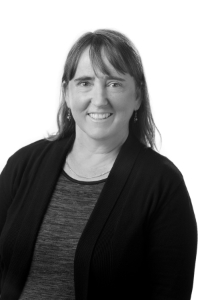
- Position
- Biorepository Manager/Research Assistant
- Affiliation
- Department of Clinical Pathology and The University of Melbourne Centre for Cancer Research (UMCCR)
- Sue Preston
Bio
Sue has a Bachelor of Applied Science (Chemistry) from Monash University.
Since November 2014, Sue has been the Biorepository Manager of the Colorectal Oncogenomics Group, Department of Clinical Pathology, Faculty of Medicine, Dentistry and Health Sciences, The University of Melbourne, Victorian Comprehensive Cancer Centre.
This collection is the largest biorepository of colorectal cancer and pre-malignant colonic lesions within Australia. The collection includes:
- ACCFR - Australasian Colorectal Cancer Family Registry, Colon Cancer Family Registry Cohort, which is part of the largest family study of colorectal cancer in the world;
- ANGELS – Applying Novel Genomic approaches to Early-onset and suspected Lynch Syndrome colorectal and endometrial cancers;
- GCPS – Genetics of Colonic Polyposis Study;
- Genetics of Sebaceous Skin Lesion Study;
- Detecting heritable mutations in post cholecystectomy pain and recurrent pancreatitis - under diagnosis of LPAC disease; and
- MCCS – Melbourne Collaborative Cohort Study focusing on colorectal and endometrial cancer biospecimens.
Sue is responsible for both receiving and dispatching samples from the biorepository, including processing and dispatching samples to national and international collaborators. Sue covers laboratory biorepository and molecular work, occupational health and safety compliance, laboratory administration, ordering and financial processing in the group and, importantly, training new staff members and students in safe and accurate laboratory procedures.
Prior to joining Associate Professor Buchanan’s Lab, she worked for other labs in the University of Melbourne, also 11 years at the Dorevitch Pathology Central Laboratory in Immunoserology, and 11 years working for CSIRO Division of Forestry and Forest Products.
Sharelle Joseland
Study Co-ordinator – ANGELS Study
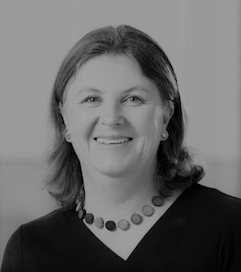
- Affiliation
- Department of Clinical Pathology
- Phone
- +61 3 8559 6143
- Sharelle Joseland
Bio
Sharelle has a Bachelor of Science majoring in Genetics and Biochemisty and a Graduate Diploma in Education from the University of Melbourne and a Graduate Diploma in Marketing from Monash University. Her current position is Study Coordinator for the research studies – The Genetics of Colonic Polyposis and the ANGELS study of the Buchanan lab.
She has spent the last 10 years working for the University of Melbourne as part of a small team building up the Australasian Colorectal Cancer Family Registry (ACCFR) which is part of the largest family study of colorectal cancer in the world.
Prior to working for the University of Melbourne she has worked as a social and marketing researcher on qualitative and quantitative research projects in both Australia and the U.K. She started her working career in food Research and Development for Nestle in the areas of Ice Cream and Confectionery, just for something completely different.
Assoc Prof Christophe Rosty
Honorary Research Fellow

- Position
- Associate Professor
- Affiliation
- Department of Clinical Pathology
- Publications
- Google scholar
- Assoc Prof Christophe Rosty
Bio
Dr Rosty is a specialist gastrointestinal Anatomical Pathologist, trained in Paris and graduated in 1997. His interest in gastro-intestinal cancer research started during his residency when he started his PhD which was completed in 2002 (University Necker – Paris 5). He spent 2 years in the Gastrointestinal Pathology Department at the Johns Hopkins University in Baltimore, USA, as a Postdoctoral Research Fellow. In 2009, Dr Rosty moved to Brisbane and currently works as a specialist Pathologist at Envoi Pathology, a pathology practice exclusively dedicated to gastro-intestinal and liver pathology with strong teaching and academic activities (http://www.envoi.com.au).
His collaboration with Dr Buchanan started in 2009 at the QIMR Berghofer Medical Research Institute in Brisbane. His research interests include the genetics and the molecular pathology of gastrointestinal neoplasms, in particular Lynch syndrome, serrated polyposis and hereditary gastrointestinal polyposis syndromes.
Assoc Prof Bernard Pope
Bioinformatician
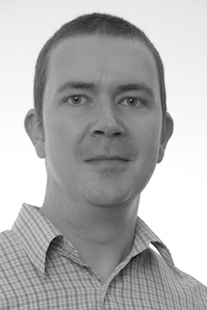
- Position
- Senior Research Fellow
- Affiliation
- Lead Bioinformatician (Cancer and Clincal Genomics) Melbourne Bioinformatics; Senior Honorary Fellow Department of Clinical Pathology; Adjunct Associate Professor (Research), Department of Medicine, Central Clinical School, Monash University
- Publications
- www.berniepope.id.au/publications.html
- Phone
- +61 3 8344 0434
- Assoc Prof Bernard Pope
Bio
After completing a national-award winning PhD in computer science in 2007, and then a research internship at Microsoft Research in Cambridge, Bernard returned to the University of Melbourne to take up a lecturing position in the Department of Computer Science and Software Engineering. In 2010 he joined the newly-formed VLSCI (now Melbourne Bioinformatics), a $100M project to build a world-leading centre for bioinformatics and computational biology. In making the transition from computer science to bioinformatics, Bernard recognised the exciting new opportunities provided by the genomics revolution in biomedicine, and was inspired to apply his computing and analytic skills to important problems in human health.
During his years at Melbourne Bioinformatics, Bernard has established himself as an expert in the development of novel techniques for the analysis of large-scale genomics data sets, resulting in the production of tools which have driven key discoveries in human disease, and which can be re-applied in many different contexts. As Lead Bioinformatician for Human Genomics, Bernard heads several high profile, multidisciplinary research projects, with national and international partners.
In 2017 Bernard was awarded a Victorian Health and Medical Research Fellowship, funded by the Victorian Government, supporting his work on the prevention and treatment of colorectal cancer. Australia has one of the highest rates of colorectal cancer (CRC) in the world. Survival from CRC and patient quality of life are significantly improved by early detection, treatment, and risk management. Therefore, identifying those individuals within the population who are at the highest risk of developing CRC offers the greatest potential for its prevention. Bernard and his collaborators aim to develop new diagnostic tools that will personalise risk assessment for a large group of high-risk individuals, leading to better-targeted screening and medical intervention, aimed at those who will benefit most.
Dr Eric Joo
Molecular Biologist and Bioinformatician
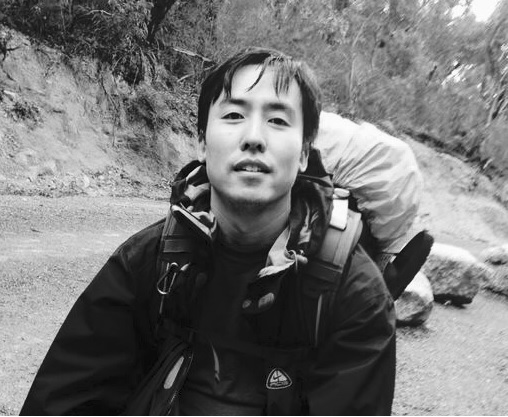
- Position
- Research Fellow
- Affiliation
- Department of Clinical Pathology
- Publications
- https://www.researchgate.net/profile/Eric_Joo
- Dr Eric Joo
Bio
B.Sc (Honours), PhD
Dr Joo is a molecular biologist and a bioinformatician with a strong background in cancer epigenetics, especially DNA methylation. He brings to the team both his laboratory and data analysis expertise in genome-wide methylation techniques and methodology. He specialises in molecular techniques and analyses of genome-wide as well as loci-specific detection of DNA methylation and gene expression using a variety of platforms, including those based on microarrays and NGS.
Dr Joo completed his PhD at the Murdoch Childrens Research Institute in 2012. After carrying out his first postdoc at the Genetic Epidemiology Laboratory (The University of Melbourne), he joined the Colorectal Oncogenomics Group in 2018. He has special interests in the epigenetic aspects of colorectal cancer. His research focuses on identifying aberrant DNA methylation marks associated with the polyp-to-cancer progression as well as DNA methylation marks associated with specific subsets of colorectal cancer including early onset CRC.
Dr Khalid Mahmood
Bioinformatician
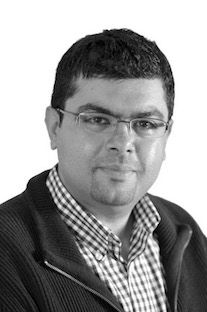
- Position
- Research Fellow
- Affiliation
- Melbourne Bioinformatics
- Dr Khalid Mahmood
Bio
Dr. Khalid Mahmood is a bioinformatician in the lab, being trained in computational biology from Monash University. The focus of his PhD was the development of computational algorithms for comparative genomics with emphasis on identifying orthologous genes, homologous genomic segments and other complex evolutionary events when comparing genomes. Khalid is also experienced in studying relationships between protein sequences and structures.
Khalid’s recent work in the lab focuses on bringing together computational methods and genomics to understand genetics of colorectal cancer. Khalid is very interested in developing methods to investigate the relationship between genetic mutations and their impact on protein function and relationship with disease.
Dr Peter Georgeson
Postdoctoral Researcher
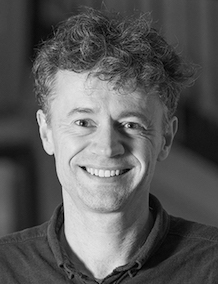
- Position
- Postdoctoral Researcher
- Affiliation
- Department of Clinical Pathology
- Publications
- Google scholar
- Dr Peter Georgeson
Bio
BEng (Hons I)/BMath MSc(CompSci) PhD
Dr. Peter Georgeson is a bioinformatician with a background in software engineering.
Peter started his career in industry as a software engineer, working on, among other things, establishing the UK's first independent online payment provider. Recently switching to bioinformatics, Peter completed his Master of Science (Computer Science) at the University of Melbourne in 2016. He was the recipient of numerous awards, including a place on the Dean's Merit List, the Johnny Smoes award for excellence in software development, and the Australian Artificial Intelligence Institute Prize.
More recently, while employed at Melbourne Bioinformatics, Peter specialised in the design, development and implementation of analysis pipelines and the application of novel analysis methods to large genomics datasets. Peter is particularly interested in the application of computational and statistical methods such as machine learning to genomics problems.
In 2023, Peter commenced a postdoctoral position with Associate Professor Dan Buchanan, with a view to improving our understanding of the aetiology of colorectal cancer, to improve diagnosis, prevention, and treatment of the disease.
Dr Romy Walker
Molecular Biologist and Geneticist
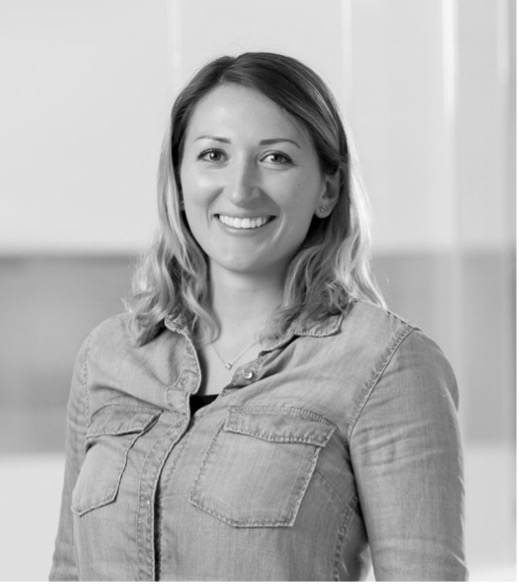
- Position
- Postdoctoral Researcher
- Affiliation
- Department of Clinical Pathology
- Publications
- Google scholar
- Dr Romy Walker
Bio
Romy is a molecular biologist having undergone her B. Sc. and M. Sc. Degree in Germany at the University Hospital Regensburg in the Institute of Human Genetics. Here, she obtained a position in a routine Diagnostics Department, focusing on hereditary tumour and rare eye diseases.
During her stay at the Institute of Human Genetics, she commenced an advanced training program offered by The German Society of Human Genetics, which she is a member of. This 5-year educational program allows scientists certified as “clinical genetic laboratory specialist” to work as professionals in clinical genetics and patients care.
Beginning of 2018, Romy joined the Colorectal Oncogenomics Group as a Ph.D. student under the supervision of renowned Associate Professor Daniel Buchanan and Professor Ingrid Winship. Upon completion, Romy commenced a postdoc position in 2023 with her research focus set on establishing novel diagnostic approaches for risk stratification of individuals with mismatch repair-deficient cancer. Specifically, Romy is interested in improving the detection and diagnosis of Lynch syndrome by providing important contributions to the precision prevention of the most common hereditary disorder for bowel cancer.
In 2023, Romy was the recipient of several awards, including the University of Melbourne Early Career Researcher Grant, the Melbourne Medical School Publication Prize and the BGI Genomics ANZ Genetic Service Grant, amongst others.
Elizabeth (Yen-lin) Chu

- Position
- PhD Candidate
- Affiliation
- Department of Clinical Pathology; University of Melbourne Centre for Cancer Research
- Publications
- ResearchGate
- Elizabeth (Yen-lin) Chu
Bio
Elizabeth graduated from the University of Melbourne with a Bachelor of Science in Pathology (2018-20) and a Master of Biomedical Sciences (2021-22) with First-Class Honours.
Elizabeth joined the Colorectal Oncogenomics Group in 2021 as a Master's student, with her research focusing on elucidating the molecular mechanisms by which gut bacteria cause colorectal cancer. Elizabeth commenced PhD training in 2023 to continue the investigation of the gut microbial risk factors for colorectal cancer and expand into finding novel molecular mechanisms using genomic and epigenomic approaches. Elizabeth was the recipient of numerous awards, including the Australian Government Research Training Program Scholarship, the Margaret and Irene Stewardson Scholarship, and the W. P. Greene Scholarship.
Concurrent with her Master's and PhD studies, Elizabeth works as an academic tutor with the School of Biosciences and Department of Microbiology and Immunology at the University of Melbourne.
Aaron Meyers
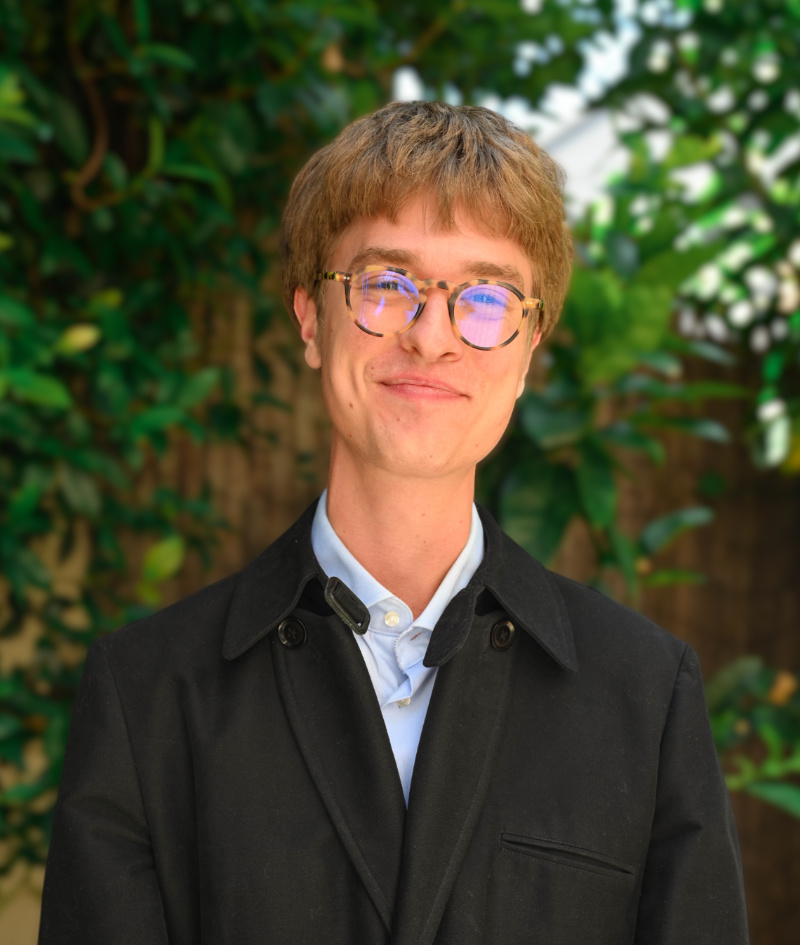
- Position
- PhD Candidate
- Affiliation
- Department of Clinical Pathology; Centre for Epidemiology and Biostatistics; University of Melbourne Centre for Cancer Research
- Aaron Meyers
Bio
Aaron is a Geneticist and Molecular Epidemiologist with a background in cancer immunology.
Whilst completing a Bachelor of Biomedical Science at the University of Western Australia (2018-20), Aaron received adjunct training in laboratory haematology; worked on the development of epigenome engineering technologies at the Harry Perkins Institute; and obtained Cancer Council scholarship funding to work on the development of a biomaterial-delivered immunotherapy for paediatric soft tissue sarcoma that has since entered clinical development.
Aaron was awarded a first-class Honours Degree from the University of Melbourne and Peter MacCallum Cancer Centre in 2021 for characterising the interplay between tumour-intrinsic cytokine signalling and tissue-specific immune microenvironments in metastatic prostate cancer, graduating equal first in the departmental cohort. He then pursued an interest in cancer prevention and early detection through a Master of Science in Epidemiology at the University of Melbourne (2022-23), receiving the Top Graduating Student Award.
Concurrent to his Masters, Aaron worked at Melbourne High Dimensional Analytics to explore the genetic susceptibility to pancreatic cancer using Bayesian machine learning methods. In 2023, he joined the Colorectal Oncogenomics Group for a dissertation investigating immunogenomic modifiers of colorectal cancer risk in Lynch syndrome families and the general population, which received the Capstone Excellence Award.
In 2024, Aaron commenced PhD training under the supervision of A/Prof. Dan Buchanan and Prof. Mark Jenkins to investigate early-onset colorectal cancer aetiology, pathogenesis, and risk using multi-omic and molecular epidemiological approaches, alongside part-time work with Prof. John Hopper to study the architecture of genetic susceptibility to early-onset familial breast cancer.
Emma Barrance
Colorectal Oncogenomics Group Community Advisory Group member
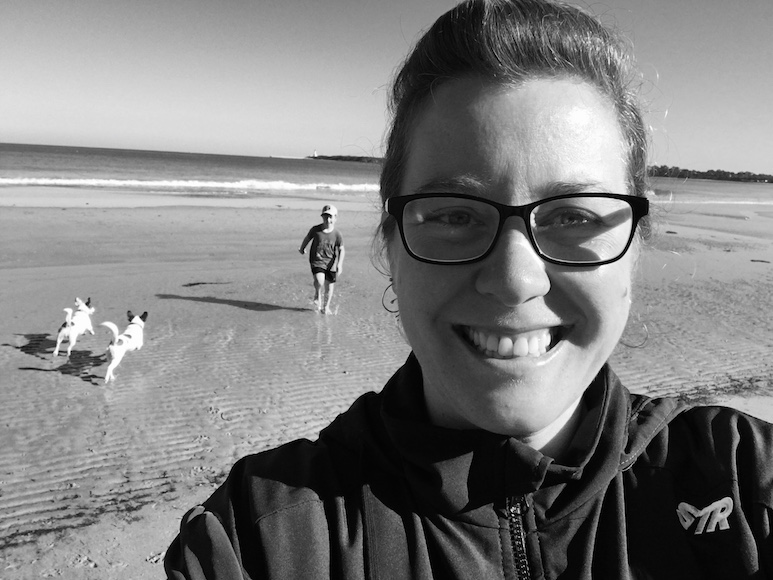
Bio
Emma comes to the team as a person with lived experience of Young Onset Colorectal Cancer (YOCRC). She currently lives with advanced disease. Emma is an active member of the Colorectal Oncogenomics Group (COG) and the Colorectal Oncogenomics Group Community Advisory Group (COGCAG) of the Buchanan Lab. Since her initial diagnosis in January 2018 Emma has had to significantly redesign what her role is in the world. She is a proud mother and wife, and after a premature medical retirement from her working life, has shifted attention to further raising awareness of YOCRC. Emma has been involved with the Buchanan Lab at Melbourne University since late 2018, first as an ANGELS study participant and later contributed to the development of the consumer advisory group to guide the YOCRC research in Dan Buchanan's Lab. Emma draws on 20 years of professional experience as a Community Development Practitioner in the private, NFP, Local and State Government sectors. She has a strong desire to use her role within the team to assist with awareness raising, linking the work done by the research team in with community. Her previous roles in policy, strategic development and the creative industries will all prove useful touchstones to help further the work being done in this YOCRC space.
Natalie Diepenhorst
Colorectal Oncogenomics Group Community Advisory Group member
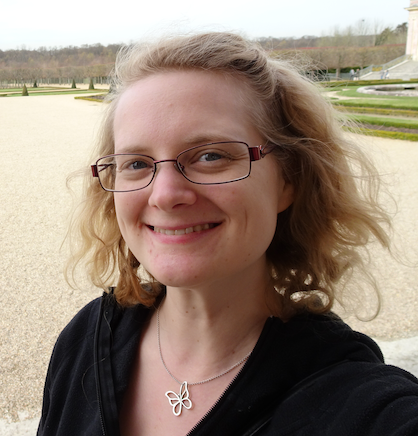
Bio
Natalie Diepenhorst comes to the team as a person with lived experience of Young Onset Colorectal Cancer (YOCRC). Natalie is an active member of the Colorectal Oncogenomics Group (COG) and the Colorectal Oncogenomics Group Community Advisory Group (COGCAG) of the Buchanan Lab. She currently works as a research fellow at the Monash Institute of Pharmaceutical Sciences as part of a drug discovery program with the French pharmaceutical company, Servier. She has a PhD in Biochemistry and molecular biology from the University of Melbourne and provide advice and feedback on the research activities as well as the translational efforts for the Colorectal Oncogenomics Group.
Dr Amanda Whelan
Colorectal Oncogenomics Group Community Advisory Group member
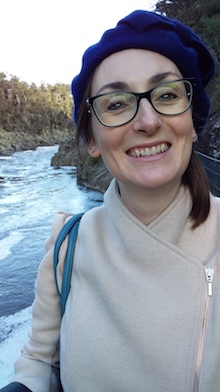
Bio
Amanda comes to the team as a person who lives with Serrated Polyposis Syndrome (SPS), following diagnosis in 2016. Amanda is an active member of the Colorectal Oncogenomics Group (COG) and the Colorectal Oncogenomics Group Community Advisory Group (CPGCAG). She has a PhD in Organic Chemistry from Monash University, and after 12 years working in the pharmaceutical industry now works for TasWater, overseeing the performance and operation of Water Treatment Plants across Northern Tasmania. Amanda is passionate about raising awareness of SPS and it’s role in the development of colon cancer. She is excited to be taking part in the research undertaken by the Colorectal Oncogenomics Group to gain a better insight into the condition and its mode of development.
Dr Mailie Gall
Bioinformatician
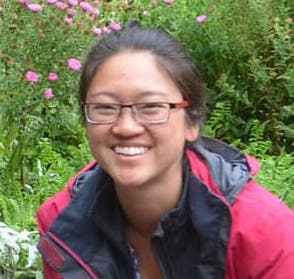
- Position
- Masters of Science (Bioinformatics) candidate
- Affiliation
- Department of Clinical Pathology
- Dr Mailie Gall
Bio
Mailie is a bioinformatician and evolutionary (marine) ecologist, with a PhD in Marine Ecology (2016). Mailie started in the field of medical science (Bachelor in Medical Science, UNSW, 2009), but a discovered a passion for the marine sciences and went on to complete a Masters of Philosophy in Marine ecotoxicology with Professor Emma Johnston at UNSW (2011). Continuing along this theme, her PhD, Patterns of dispersal in the Tasman sea and South Pacific Ocean: population genetics and the role of environmental constraints, focussed on the ecology, larval biology, geographical distribution and population genetics of two closely-related Australian sea urchins. After finishing her PhD and with desire to upskill in computational biology fields, she started a Masters of Science (Bioinformatics) at the University of Melbourne. Alongside completion of her Masters, she has worked with the Australian Genomics Health Alliance (AGHA) and developers at Melbourne Bioinformatics, to develop a provenance language and visualisation tool to describe clinical bioinformatic pipelines. This tool has been used to describe the majority of clinical pipelines in operation across the AGHA and affiliated organisations.
Mailie joined the Colorectal Oncogenomics Group in 2018 and is currently working on Familial Colorectal Cancer Type X (FCCTX). The purpose of the project is to describe novel germline copy number variations across large familial SNP-array datasets. Mailie continues to work with collaborators in Sydney on Marine science projects including work on the Crown-of-thorns starfish on the Great Barrier Reef and population genetics of an Australian starfish Meriadastar calcar, in addition to ongoing work on manuscripts from her PhD.